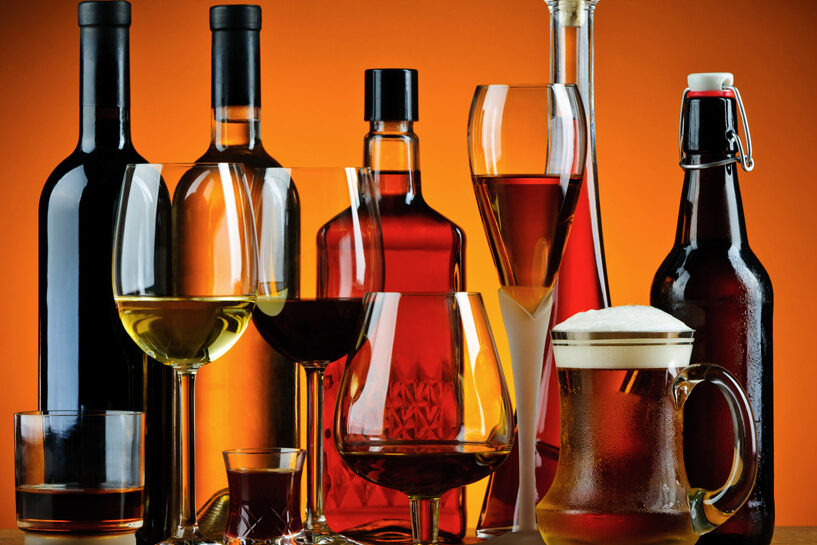Beer, wine, and spirits differentially influence body composition in older white adults–a United Kingdom Biobank study
Abstract
BACKGROUND
Aging is characterized by body composition alterations, including increased visceral adiposity accumulation and bone loss. Alcohol consumption may partially drive these alterations, but findings are mixed. This study primarily aimed to investigate whether different alcohol types (beer/cider, red wine, white wine/Champagne, spirits) differentially associated with body composition.
METHODS
The longitudinal UK Biobank study leveraged 1869 White participants (40–80 years; 59% male). Participants self-reported demographic, alcohol/dietary consumption, and lifestyle factors using a touchscreen questionnaire. Anthropometrics and serum for proteomics were collected. Body composition was obtained via dual-energy X-ray absorptiometry. Structural equation modeling was used to probe direct/indirect associations between alcohol types, cardiometabolic biomarkers, and body composition.
RESULTS
Greater beer/spirit consumptions were associated with greater visceral adiposity (β = 0.069, p < 0.001 and β = 0.014, p < 0.001, respectively), which was driven by dyslipidemia and insulin resistance. In contrast, drinking more red wine was associated with less visceral adipose mass (β = −0.023, p < 0.001), which was driven by reduced inflammation and elevated high-density lipoproteins. White wine consumption predicted greater bone density (β = 0.051, p < 0.005).
DISCUSSION
Beer/spirits may partially contribute to the “empty calorie” hypothesis related to adipogenesis, while red wine may help protect against adipogenesis due to anti-inflammatory/eulipidemic effects. Furthermore, white wine may benefit bone health in older White adults.1
Authors:
Brittany A. Larsen,Brandon S. Klinedinst,Scott T. Le,Colleen Pappas,Tovah Wolf,Nathan F. Meier,Ye-Lim Lim,Auriel A. Willette
First published: 07 February 2022
Link: https://onlinelibrary.wiley.com/doi/10.1002/osp4.598
Nutrigenomics Institute is not responsible for the comments and opinions included in this article






